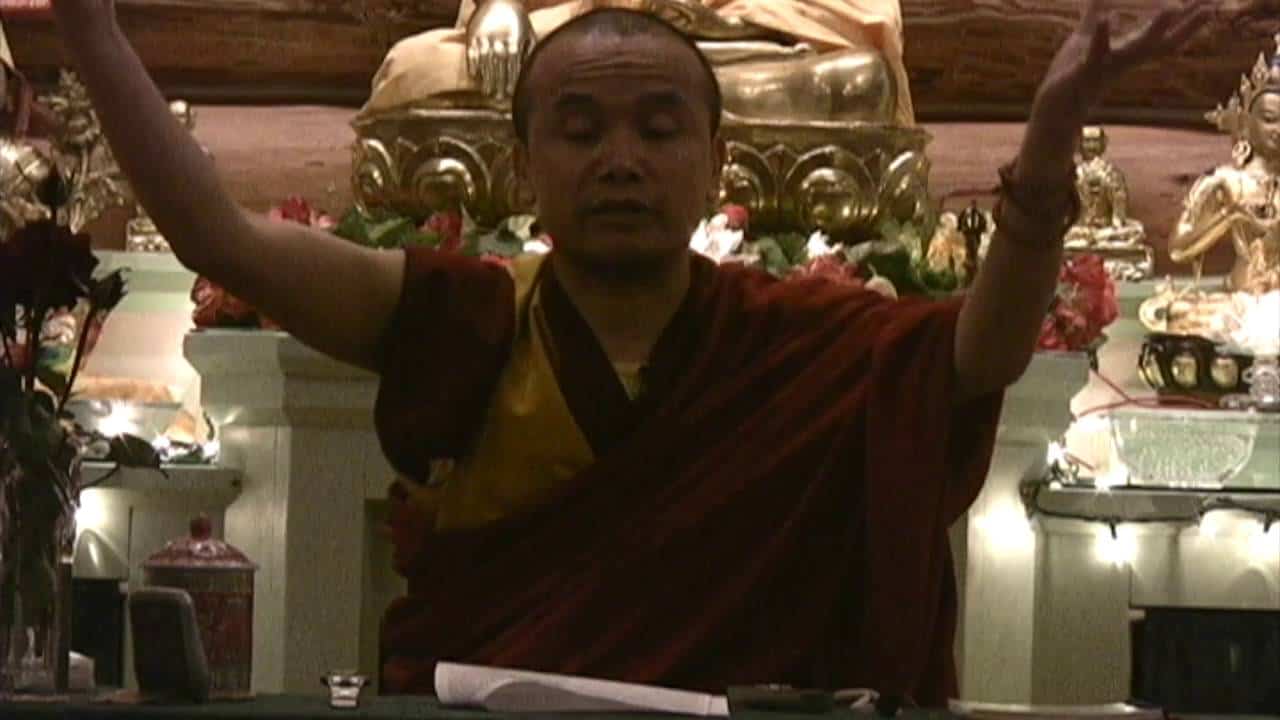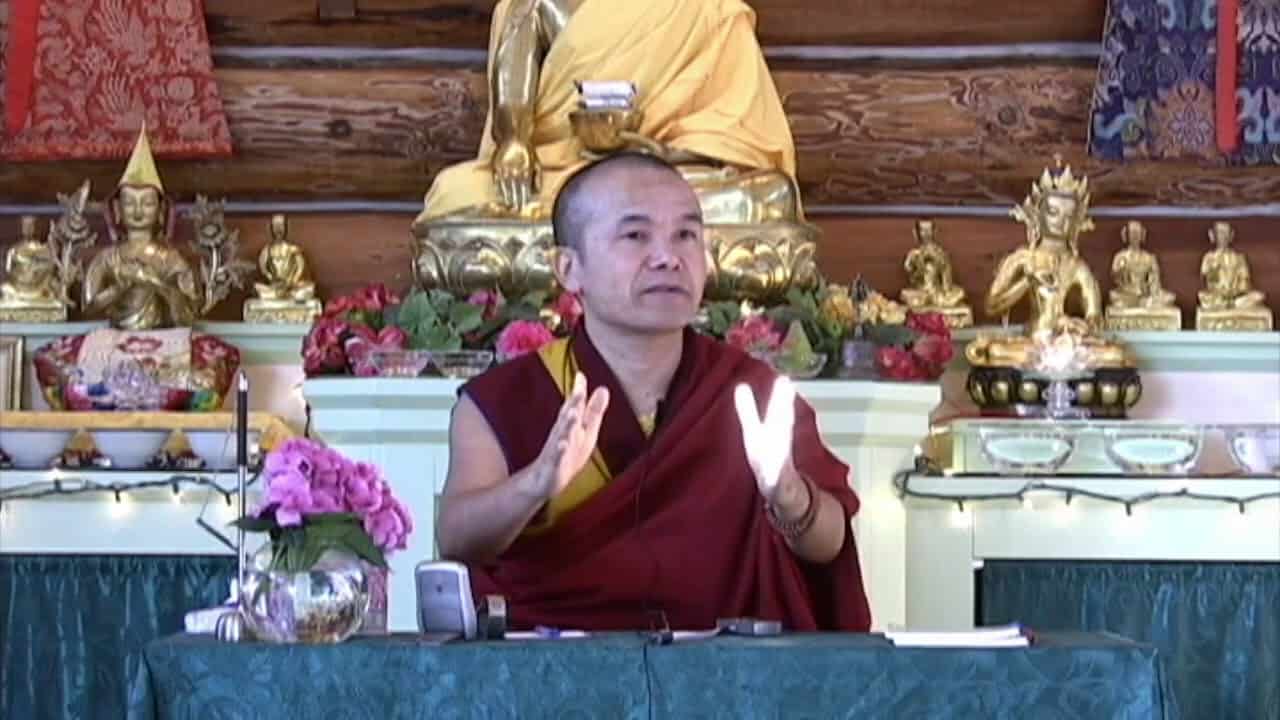Verse 16: Opening the door of liberation
Part of a series of talks on the 41 Prayers to Cultivate Bodhicitta from the Avatamsaka Sutra (the Flower Ornament Sutra).
- Awareness of own afflictions and impediments
- To practise ourselves before we can really be of great benefit
41 Prayers to cultivate bodhicitta: Verse 16 (download)
Today we’ll move on to the 16th one, which says,
“May I open the door of liberation for all beings.”
This is the prayer of the bodhisattva when opening a door.
That’s a nice one isn’t it? You open the door to liberation for all sentient beings and then sentient beings can go through. So previously the door’s closed, they kind of want happiness and don’t want suffering but they don’t know where the door is.
You remember the turkeys in the winter retreat? They’ll come inside the yard, the gate will be open for them, we’ve already opened the gate, but the turkeys continue to run around inside the yard getting very anxious because their friends are on the outside and they can’t get to their friends. But whenever they come near the door, they go the other direction, when they come near the opening of the gate, they go the other direction because they get scared. It’s really hilarious to watch, you’ll see this winter.
But it’s also very very sad because the gate is open but they don’t go through. And so training [to be] bodhisattvas, we want to continually open the gate for ourselves and others. But we can’t really expect others to go through that gate—that door to liberation—if we run away from it ourselves. Because we can see in our mind sometimes, we know really what we need to do, there’s an affliction arising, we’re kind of aware at it at some level, but we kind of ignore it at another level and then we just run away from the door to liberation because we just kind of let these negative patterns keep going on and on and on.
Here we’re saying, “May I open the door to liberation for sentient beings.” That’s a beautiful image, open the door, all the sentient beings go through liberation. Us being able to teach them, show them the way and they go through the door, but we’ve got to be able to go through the door ourselves first. And the more we kind of practice ourselves, trying to let ourselves go through that door to liberation the more we’ll understand what the impediments for other sentient beings are. When we understand what their impediments are, because we understand what our impediments are, then we develop more patience and compassion for them.
Whereas when we have this intellectual idea of, “I’m a Buddhist practitioner, I’m going to show them the door to liberation,” and then they go, “Sorry I’m not interested, I’m going the other way.” Then we can sometimes get very upset with them, very disappointed, especially when we see with other people what their problems are. If they only just drop that attachment, they’ll be fine; if they only drop that anger, they’ll be fine; if they only stop being jealous, they’ll be fine. And we see it so clearly and they don’t do it. Isn’t it? But what about us? We’ve got to start looking at ourselves. When the door to liberation is open for us and we’re not going thorough.
Because if we really looked at that then we’ll be able to eliminate that impediment and start going through ourselves and that’ll help us have more patience and compassion for others. And I’m saying this because sometimes when we hear teachings on bodhicitta, we think oh I’m going to benefit everybody and then we just start looking at how we can improve the lives of everybody else around us and we give them all our advice about what they should do. Somehow we’re missing the point, okay? Because we’ve really got to practice ourselves before we can really be of that great benefit.
Venerable Thubten Chodron
Venerable Chodron emphasizes the practical application of Buddha’s teachings in our daily lives and is especially skilled at explaining them in ways easily understood and practiced by Westerners. She is well known for her warm, humorous, and lucid teachings. She was ordained as a Buddhist nun in 1977 by Kyabje Ling Rinpoche in Dharamsala, India, and in 1986 she received bhikshuni (full) ordination in Taiwan. Read her full bio.


